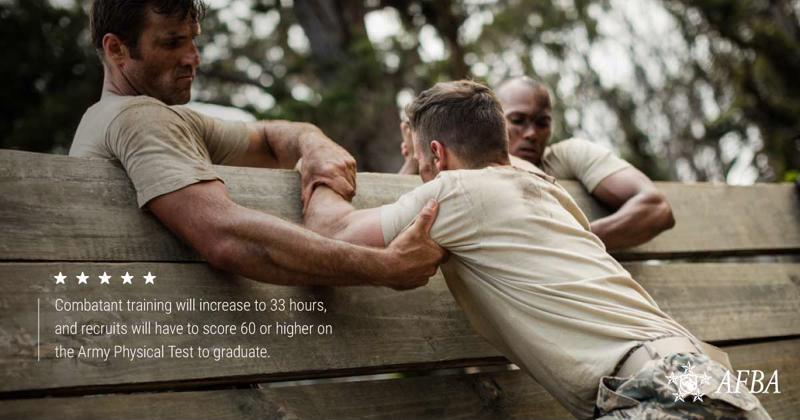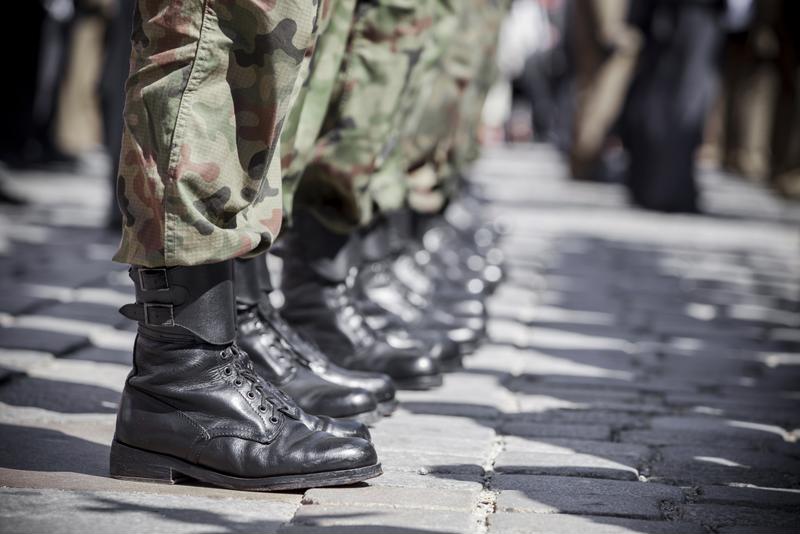The Army Basic Training course is being revamped due to what military leaders say is a lack of readiness and discipline. The new course is designed to produce soldiers who are more physically fit, more diligent and are better motivated overall.
Officers identify issues with emerging recruits
A poll of more than 27,000 warrant officers, noncommissioned officers and others ranging in rank from second lieutenant to colonel were ask to identify deficiencies they saw among the service's newest soldiers, according to Stars and Stripes. The resounding primary concern was a lack of discipline. Officers saw that many of the soldiers had issues following orders and seemed to lack respect for their superiors. Unkempt uniforms and late arrival were also common problems, indicating poor work ethic.
The revised Army Basic Training will focus on two goals: promoting Army values and producing graduates with better physical fitness.
In terms of the first focus, the fact that the U.S. was engaged in two ground wars over the past 20 years caused several long-standing traditions to fall by the wayside. Routines such as shoe shining were dropped in favor of preparing servicemembers for combat.
Now, some of those traditions will be incorporated into the revised training program. Recruits will have bunk inspections once again, and ceremony participation will increase. Recruits will also be tested on army history.
According to Maj. Gen. Malcolm Frost, the historical focus was included to teach trainees military values through lessons on America's most pivotal battles. The lessons will revolve around the actions of individual servicemembers to show recruits "what it means to be a U.S. army soldier," according to Stars and Stripes.

Additionally, recruits will go through physical training exercises designed to better reflect encounters they may have in the field. As part of this effort, combatant training will increase from 22 to 33 hours, and they will practice shooting rifles with only iron sights. Trainees will also be taught important, non-combative skills like arm signal communication and first aid.
The training comes with a new final exercise, known as The Forge, which has a time limit of 81 hours. Trainees will traverse 40 miles of road with various tasks arranged along the way. These vary from night infiltration, medical evaluation and missions to supply troops to patrols and obstacle courses.
The recruits will be held to higher physical fitness standards in order to graduate. They'll need to score 60 or higher in the three categories of the Army Physical Fitness test – sit ups, push ups and a two-mile run – rather than 50.
That said, the revised program doesn't just add; it also reduces or eliminates unnecessary training features. One example would be hand grenade competency, which will no longer be a graduation requirement, according to Military.com. Recruits will still be trained in hand grenade use, however.
"What we have found is it is taking far, far too much time," Frost said, according to the website. "It's taking three to four times as much time … just to qualify folks on the hand grenade course than we had designated…"
Launching the full program
Military officials plan to fully roll out the training course by the end of the fiscal year. Recruits at Fort Jackson in South Carolina have already undergone test versions of the program to great success, according to the Army Times.
"They're more resilient," Sgt. 1st Class Heidi Dougherty, a senior drill sergeant, said of the new recruits to the publication. "They're mentally tougher, physically tougher."
Not only is the revised training producing better servicemembers, but the significant accomplishment instill a sense of pride in the recruits.
"A year and a half ago [training] wasn't very mission-oriented," Fort Jackson Commander Maj. Gen. Pete Johnson told the Army Times. "It was essentially one mission: it was occupy a defense and dig a foxhole to standard. It would take 36 hours of four days, and there was no real sense of achievement at the end of it."
The Fort Jackson results are clearly encouraging, and one can only hope all recruits who undergo the new process will emerge with the same promise.


